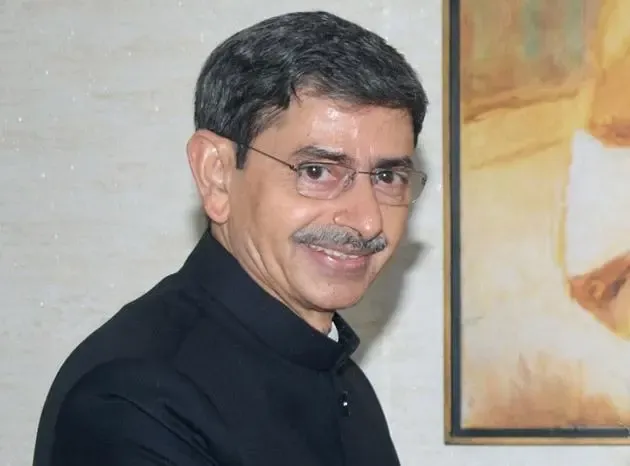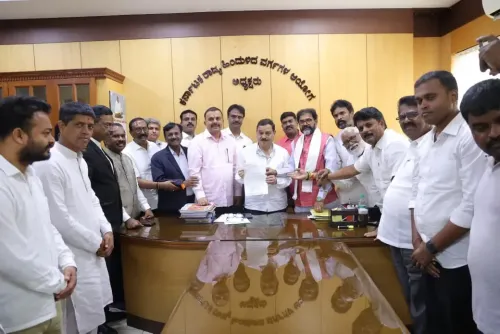PMK Applauds Supreme Court Ruling Against TN Governor Ravi

Synopsis
Key Takeaways
- The Supreme Court ruling is seen as a landmark decision.
- The judgment limits the Governor's power over state legislation.
- The PMK emphasizes the need for swift appointments in Tamil Nadu universities.
- Political leaders across the spectrum have welcomed the ruling.
- The ruling could potentially influence similar cases nationwide.
Chennai, April 8 (NationPress) The Pattali Makkal Katchi (PMK) expressed its approval of the Supreme Court’s ruling against Tamil Nadu Governor R.N. Ravi on Tuesday, labeling it a historic decision that fortifies the authority of state governments.
In a statement, PMK founder Dr. S. Ramadoss remarked, “This ruling brings an end to the arbitrary behavior of Governors delaying Bills passed by State governments. It stipulates that any Bill must be sanctioned within a maximum of four months.”
Dr. Ramadoss further stated, “Today’s ruling restores considerable power to State governments. It ensures that Governors can no longer postpone or impede crucial legislation that benefits the State.”
He also called on the Tamil Nadu government to promptly appoint Vice-Chancellors to the eight vacant positions in state universities, stressing the importance of protecting students’ futures.
It is noteworthy that the PMK had contested the 2024 Lok Sabha elections in partnership with the BJP.
The Supreme Court’s ruling has garnered support from various political factions.
Tamil Nadu Congress Committee President K. Selvaperunthagai praised the verdict, asserting, “The top court has condemned the anti-people actions of the Governor and has conveyed a strong message against the intentional delay in approving Bills passed unanimously in the Assembly.”
He continued, “The ruling establishes that all powers reside with the elected government, while the Governor — as a nominal head — possesses only limited authority. The court has decisively rejected the BJP’s attempts to undermine the Constitution.”
DMK Rajya Sabha MP and Supreme Court advocate S. Wilson also commended the court’s decision, stating, “This ruling is applicable not just to the Tamil Nadu Governor but to all Governors across India. Consequently, the Governor will no longer serve as the Chancellor of State universities in Tamil Nadu with immediate effect.”
Additionally, he mentioned that the Supreme Court’s ruling paves the way for a legal challenge against President Droupadi Murmu’s delay in granting assent to the NEET exemption Bill passed by the Tamil Nadu Assembly.
The Supreme Court ruled on Tuesday that Governor R.N. Ravi acted unlawfully by withholding assent to 10 Bills, some of which have been pending since January 2020, and subsequently sending them to the President after the Tamil Nadu legislature re-passed them.
A Bench, consisting of Justices J.B. Pardiwala and R. Mahadevan, stated that the Governor lacked the authority to reserve a Bill for the President once it had been re-passed by the Assembly in its original form.
The court indicated that the Governor’s actions were devoid of bona fides and declared that the ten Bills were considered to have received assent on the date they were re-presented to him.
The ruling highlighted that under Article 200 of the Constitution, the Governor possesses no discretionary power and must act based on the advice of the Chief Minister and the Council of Ministers.
The court clarified that only a substantially altered Bill can be reserved for the President’s assent upon re-presentation. It also ruled out the Governor’s ability to merely withhold assent.
This top court's decision was made following a plea from the Tamil Nadu government, which challenged Governor Ravi's refusal to approve multiple state Assembly Bills. The state sought court intervention to compel the Governor to make decisions on Bills within a defined timeframe.
Setting deadlines for Governors to act on state legislation, the Bench ruled that inaction could be subjected to judicial review.
aal/rad








